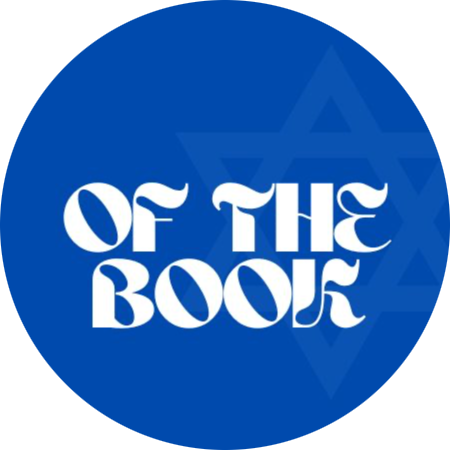What Hath God Wrought!
A girl thought these words should be the first
dotted and dashed
onto paper letters reduced to two
gestures, two signs in series, as though the vowels
from a Torah had all fled and established
their own identities
and Morse, friend to her father,
thought, Why not? Perhaps the passage from Numbers 23: 23
the last bit of scripture she read, four strong syllables
lodged in her ear.
They are catchy, found near
the tail-end of the Balaam-Balak affair, the one with talking ass
and messenger who can’t say what the king wants
because God wants
him to say something else.
Perhaps she thought the code came from God
and should be used, thusly, or that it would not work
at all. Wrought,
an odd sound made by too many
letters demanding of the mouth. Apparently, we lost
the “gh” during The Great Vowel Shift – who knew?
The linguists.
Does this explain why I can’t say
what I want? – but that’s not the Hebrew, anyway – pa’al – wrought
past-tense for worked, molded, shaped, formed,
present tense
not wreak (seek/sought)
or wring (bring/brought) – wrought iron is worked,
and being an unwitting prophet is work, too –
paid and unpaid.
The whole phrase often framed as a question –
so hard to say “what” without a rising voice – but the text displays
an exclamation – statement of wonder and exuberance,
praise for the nation –
no wringing of hands or wreaking of havoc,
not doubt – no doubt – in our merits, or in our ability to progress.
~
Patty the Constant
I can’t stop thinking about poor Uzzah
who reached out to keep the holy ark from
falling off the cart drawn by oxen when
the animals stumbled and since he touched
the ark, was struck down on the spot.
Supposedly God was mad at the mode
of transport and so made the beasts stumble;
it should have been carried on mens’ shoulders.
Other reasons seem equally extreme.
I’m also obsessed with Piero the Unfortunate,
a Medici, lord of Florence for just
two years, one brother a pope, one cousin
a pope. He ineptly governed and surrendered
numerous fortresses and towns to King
Charles of France. Piero’s palace was
sacked and family exiled, ultimately
losing the Republic for the Medicis.
He drowned in the Garigliano River.
Why must history be so cruel? It’s hard
to understand divine and human rule
and law and while these men share nothing save
death, which can’t even be called “untimely”
(since when is death on the clock we obey),
I am by struck by their fates and their names,
inviting modifiers and definitional
nouns to indicate the quality of
performance as compared with others who
had the chance to make their mark as I am
a constant maker of constant mistakes.
~
Dystopia
Yankee Dave Cohn pitched a perfect game:
twenty-seven batters up and out,
eighty-eight throws.
Sandy Koufax pitched one, Don Larsen
another into Yogi Berra’s mitt.
Rare is perfection
and yet, no two perfect games alike. And what
of miseries? Are no two woes
the same?
Schadenfreud is German for taking pleasure
in another’s pain – this, too,
perfectible.
Mrs. Sally Petrakovitz, the Austrian
whose plump fingers flew
over the keys,
told me: Practice, practice.
~
If You Tour the Wind Farm
Ask to see the west wind
(verse’s pet)
and the old guard, Boreas –
in human form, he sired
twelve colts
that galloped over fields
of wheat without bending
the pale
heads of the wheat.
In a grand, gilded cage
are the winds
of scripture that brought
quails from the sea, assuaged
the waters,
smote Job’s children – they
aspire to lost grandeur
and must
not be taken lightly.
~
Ma’ariv Aravim
One translation: “you evenings evenings.”
That double-dose of dusk, dark – quite a feat
when all I am trying to do is clear my mind
enough to not make prayer a mockery, to make
words transparent, not content-laden, freighted
with my woes, which are not petty to me –
I would be content in lieu of joyful, if I could.
You need not “mornings mornings” – just let light
show up, blend in, no fanfare, flourish, and I’ll try
to keep this praise free of petition (dawn’s greed).
~
The Word from Tambach
If Meister Eckhart was right
that the only prayer we need
to say is thank you,
the issue could be tone
as mine can be dismissive,
insincere. Thank you
(the morning edition)
is not coming easy – the way
I say it, leaden – no way
it could reach on high, even
if on high is the ledge where
my clock sits, dawn already
pluperfect – we had gone by
then, had noted the loud tick where
you see the hand move – cruel,
overt hand – see, it says, you
did not appreciate that
moment, and now it is gone.
_______
Patty Seyburn has published five collections of poems. Her sixth, Jukebox, is forthcoming from What Books Press in fall 2025. She has a Ph.D. from University of Houston, an MFA from UC-Irvine, and an MS and BS from Northwestern University. She is a professor at California State University, Long Beach, and was a 2024 Fulbright Scholar in Romania.
